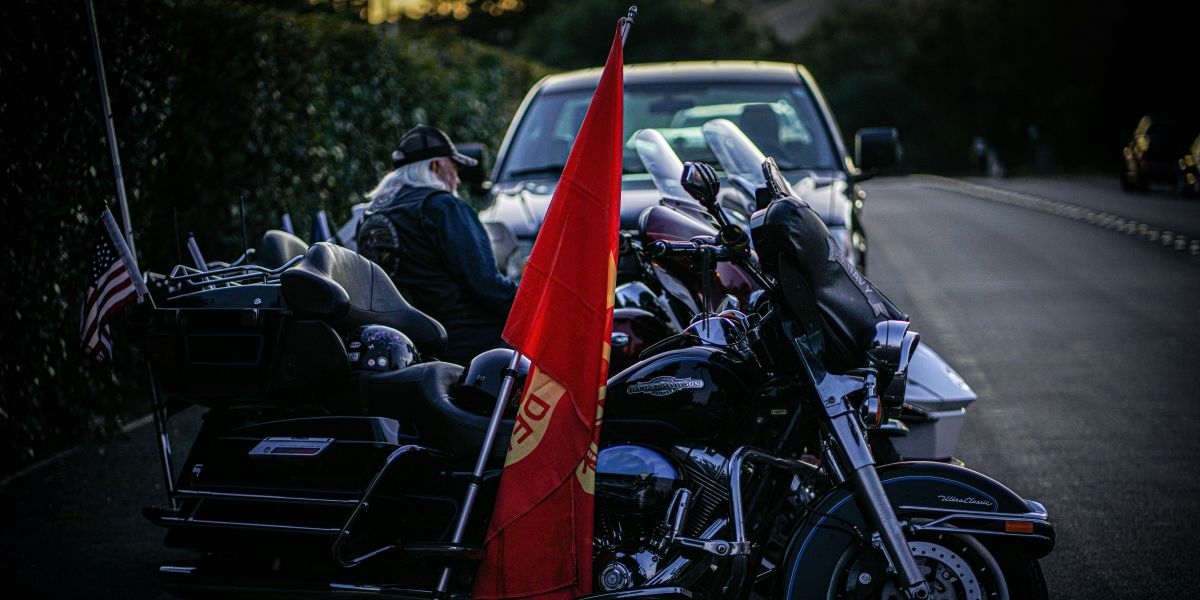Motorcycle clubs have long occupied a complicated place in popular culture. Movies, TV, and headlines tend to emphasize the most sensational aspects—biker gangs, organized crime, outlaw behavior. As a result, some people draw unfair conclusions when they see certain patches or tattoos.
In the aftermath of a crash, these impressions can color how others interpret your conduct, even before any investigation begins. It’s not always explicit. An officer taking your statement or an insurance adjuster reviewing your photos might unconsciously assume you were more aggressive or reckless simply because of the vest you were wearing.
These snap judgments can bleed into decisions about fault, liability, and credibility. For riders who survive a bad motorcycle accident, the idea that an emblem on their back could influence whether they get fair treatment can feel frustrating, even insulting.
Bias in Police Reports
Police reports often form the backbone of any personal injury claim. The narrative an officer records—who was speeding, who failed to yield, who seemed impaired—can influence everything that follows.
If you were wearing identifiable club colors when the crash happened, there’s a chance those details will appear prominently in the report. While documenting your clothing is standard practice, how that information is framed can matter. For example:
Descriptions that highlight “motorcycle gang patches” rather than simply stating “motorcycle vest”
Language implying criminal affiliation without evidence
Comments about your demeanor or attitude that are rooted more in stereotype than observation
This is one reason many riders feel it’s important to read over any report carefully. Inaccurate or loaded language can create hurdles later if you need to challenge fault assessments or clarify what really happened.
Insurance Company Assumptions
Even when you have clear evidence that another driver was at fault, your club affiliation can come up during negotiations with insurers. Adjusters are trained to assess risk and credibility, and while most professionals strive to be neutral, unconscious bias is hard to eliminate completely.
Some insurance companies still rely on outdated notions about motorcyclists—that riders in clubs are more likely to take risks, that they’re prone to confrontational behavior, or that they “know what they signed up for.” These ideas can translate into:
Lower settlement offers
More intensive scrutiny of your medical records and treatment history
Requests for extra documentation to “verify” your version of events
Even details like not wearing a helmet at the time of the accident, if applicable, can be used to cast doubt on your judgment—regardless of whether helmet use was relevant to the crash itself.
How Juries See Motorcycle Clubs
If your claim proceeds to trial, the issue of perception becomes even more pronounced. Jurors bring their own backgrounds and beliefs into the courtroom. When they see photos of club gear or hear references to motorcycle affiliations, it can stir up strong feelings.
For some jurors, club symbols represent camaraderie and respect. For others, they trigger memories of crime shows or sensational news coverage. It’s impossible to predict exactly how any given person will react, which is why attorneys often spend considerable time preparing to address these issues in voir dire and closing arguments.
What Riders Should Know
You can’t control other people’s biases, but you can stay aware of how affiliation-related assumptions can surface in an injury claim. Here are a few practical considerations to keep in mind if you ever find yourself navigating the process:
Be mindful of how you describe your club involvement when talking with police or insurers. Stick to factual, neutral language.
Review any official statements or reports for inaccuracies or loaded terminology.
Understand that insurance adjusters can obtain your medical records if you make an injury claim, so be prepared to explain any preexisting conditions or unrelated treatment.
Keep detailed records of the accident scene, including photos and witness information, to counteract any potential bias with clear evidence.
Some riders also consult professionals who have experience countering stereotypes. For instance, an NJ motorcycle accident lawyer who’s handled cases involving club members may be more familiar with the unique challenges these claims can present.
A Culture Worth Defending
It’s unfortunate that symbols meant to celebrate community and tradition sometimes get twisted into something negative during an injury claim. Most riders know the truth: motorcycle clubs aren’t monolithic. They’re made up of hardworking people who simply love to ride and look out for one another.
The road is already dangerous enough without the added burden of unfair bias. But understanding how perception works can help you stay prepared. If you ever face a situation where someone tries to use your club identity to question your character, know you’re not alone. Thousands of riders have faced the same struggle and come through it with their dignity—and their rightful compensation—intact.
At the end of the day, what matters most isn’t the patch on your vest but the facts of what happened. If you’ve done everything you can to ride responsibly, you deserve to be treated with fairness and respect, no matter which colors you wear.
Disclaimer: The information in this article is intended for general informational purposes only and does not constitute legal, medical, or insurance advice. Motorcycle accident claims can vary greatly depending on the circumstances, and individuals should consult with a qualified attorney, insurance professional, or other experts for personalized advice.


















